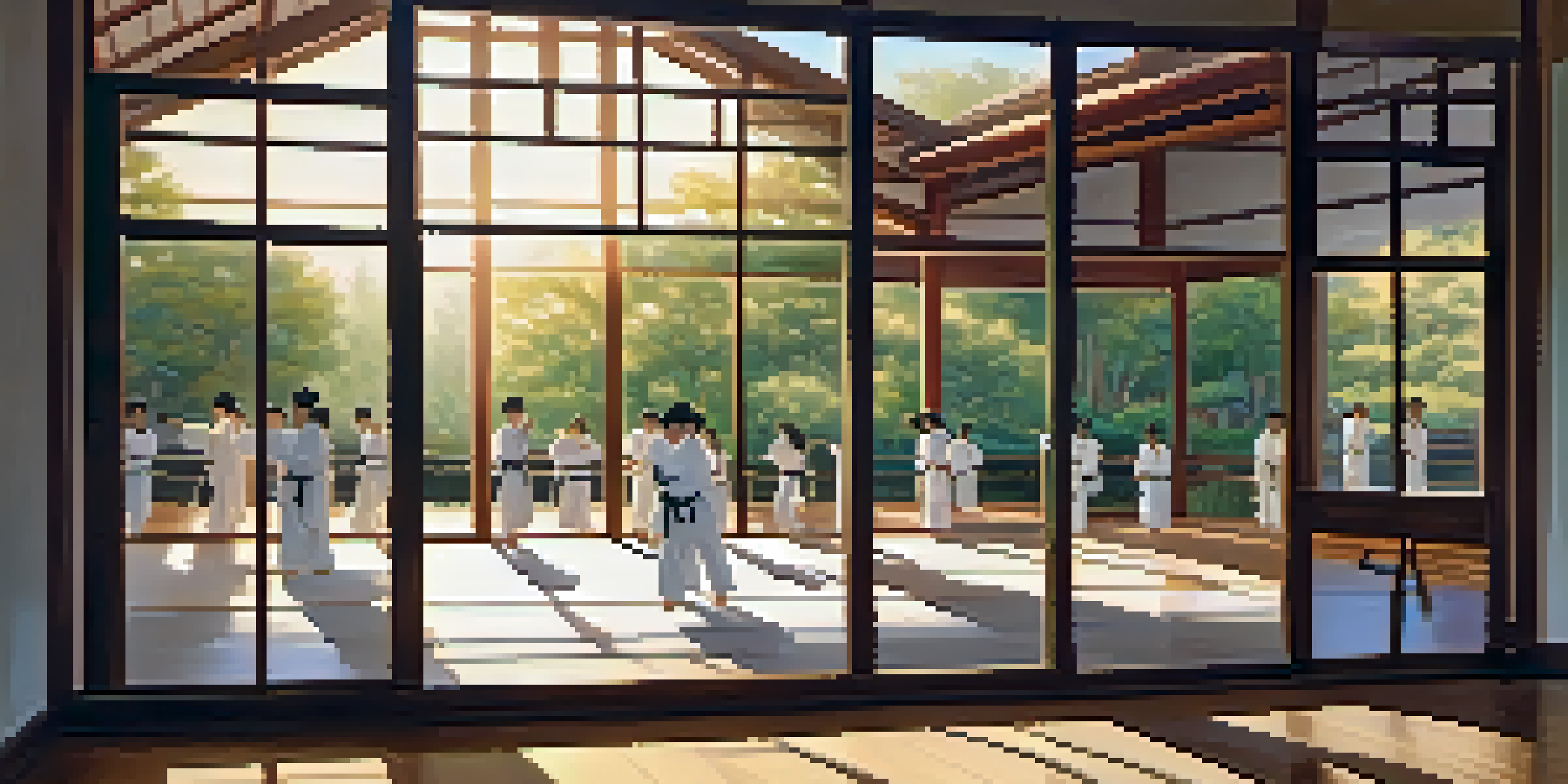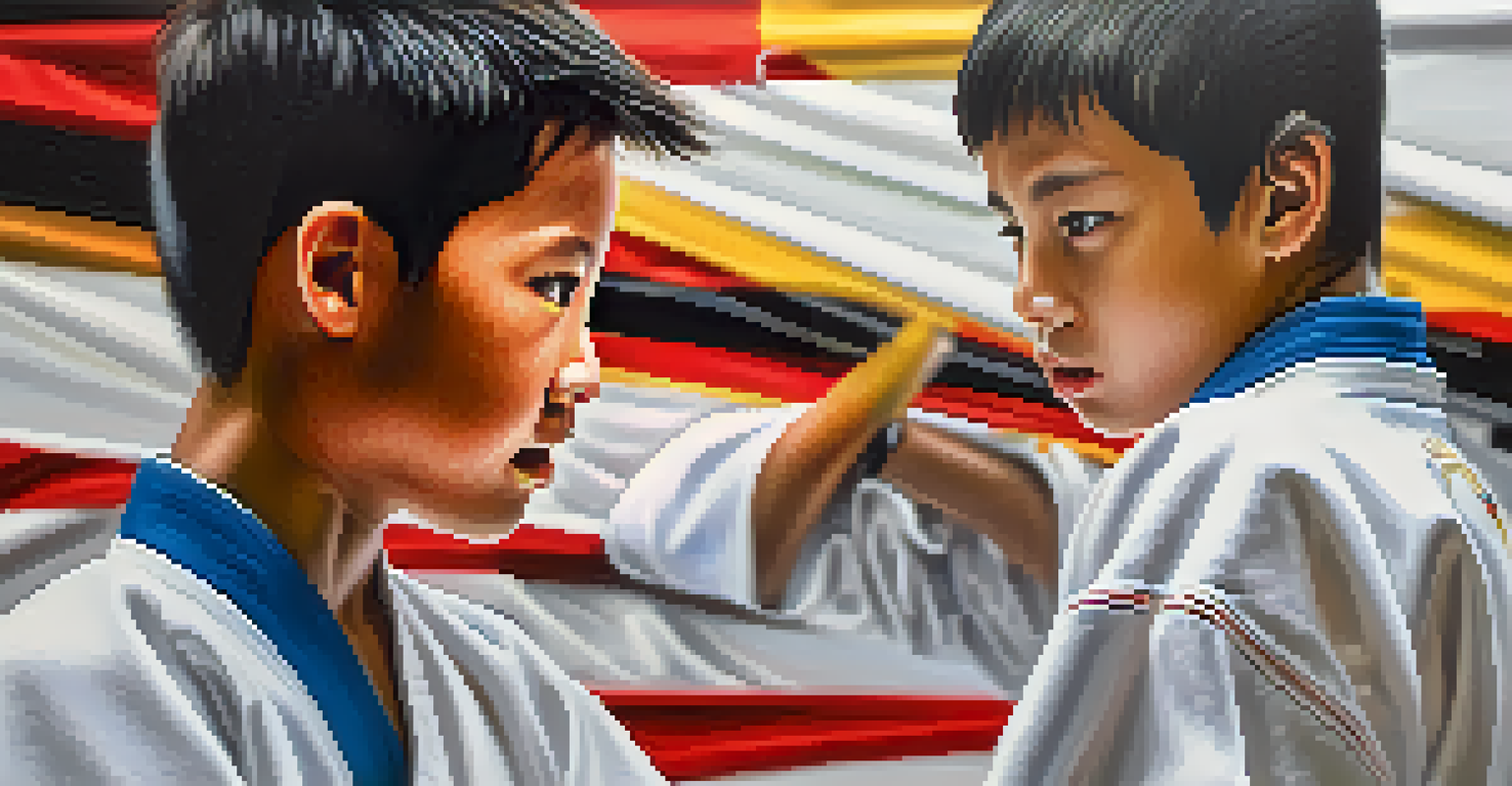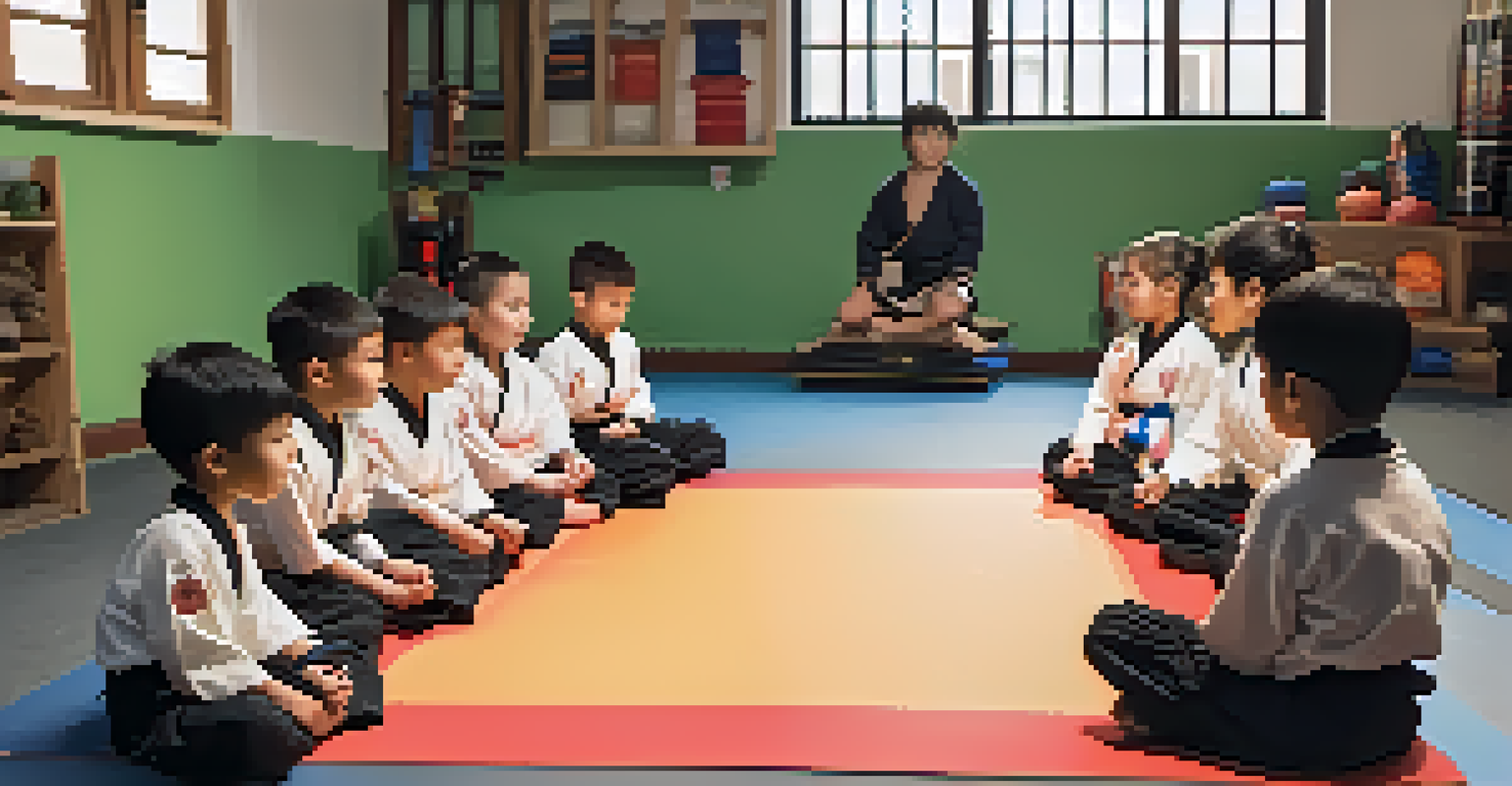Encouraging Emotional Intelligence in Youth Through Martial Arts

Understanding Emotional Intelligence and Its Importance
Emotional intelligence (EI) refers to the ability to understand and manage our own emotions while recognizing and influencing the emotions of others. It's an essential skill for building healthy relationships and navigating social situations. For youth, developing EI can lead to improved communication, empathy, and resilience in the face of challenges.
Emotional intelligence is the key to both personal and professional success.
In today's fast-paced world, emotional intelligence is becoming increasingly important. Studies show that children with high EI tend to perform better academically and socially. They are more likely to handle stress effectively and exhibit strong leadership qualities as they grow.
Encouraging emotional intelligence in youth can have lasting benefits. By fostering these skills early on, we prepare children to face life's ups and downs with confidence and compassion, paving the way for a more emotionally aware generation.
How Martial Arts Promote Emotional Awareness
Martial arts training inherently involves self-reflection and discipline, which are crucial for developing emotional awareness. Through practices like meditation and focus drills, students learn to tune into their emotions and recognize physical responses to stress or anxiety. This heightened awareness helps them understand their feelings better and manage reactions in challenging situations.

In martial arts, practitioners often face various challenges, whether it's mastering a new technique or sparring with partners. These experiences teach them to embrace discomfort and cultivate resilience, key components of emotional intelligence. As they progress, they also learn the importance of patience and perseverance, further enhancing their emotional capacity.
Emotional Intelligence Defined
Emotional intelligence (EI) is the ability to manage one's own emotions and understand the emotions of others, crucial for building healthy relationships.
Moreover, martial arts provide a structured environment where youth can express themselves physically and emotionally. This safe space encourages them to explore their feelings, ask questions, and develop a deeper connection with themselves and their peers.
Building Empathy Through Teamwork in Martial Arts
Martial arts often require working in pairs or small groups, which fosters teamwork and collaboration. When students practice together, they learn to communicate effectively and understand each other's perspectives. This shared experience is vital in building empathy, a cornerstone of emotional intelligence.
The greatest weapon against stress is our ability to choose one thought over another.
As students spar or partner up for drills, they must be aware of their partner's emotions and reactions. This awareness helps them to be considerate and supportive, whether it's adjusting techniques for safety or encouraging each other to push through challenging moments. These interactions help youth develop a sense of compassion and connection.
Additionally, martial arts classes often emphasize respect for others, teaching students to appreciate different abilities and backgrounds. Such lessons encourage youth to value diversity and cultivate a more inclusive mindset, which is essential for emotional intelligence.
Developing Self-Regulation Skills in Martial Arts
Self-regulation, the ability to manage emotions and behaviors, is a crucial aspect of emotional intelligence. Martial arts training teaches self-control through disciplined practice and adherence to rules. Students learn to stay calm under pressure, whether in a sparring match or during a competition, which helps them manage their emotions effectively.
The practice of martial arts often includes techniques to calm the mind and body, such as deep breathing and visualization. These methods not only enhance physical performance but also serve as tools for emotional regulation. By applying these strategies, students can learn to respond rather than react in emotionally charged situations.
Martial Arts Build Resilience
Through challenges in martial arts, youth learn resilience, patience, and self-regulation, enhancing their emotional intelligence.
As youth engage in martial arts, they experience the value of patience and delayed gratification. Mastering techniques takes time and effort, teaching them that progress is not always immediate, which can help them manage frustration and disappointment in other areas of life.
Boosting Confidence Through Achievement in Martial Arts
Martial arts training is structured around clear goals, such as earning new belts or mastering specific techniques. These milestones provide youth with a sense of accomplishment, boosting their self-esteem and confidence. As they achieve these goals, they learn to recognize their capabilities and strengths, which is essential for emotional well-being.
The journey of learning martial arts is filled with challenges, and overcoming these obstacles fosters a sense of resilience. When students push through difficulties, they gain a deeper understanding of their potential. This newfound confidence extends beyond the dojo, empowering them to tackle challenges in school and social situations.
Furthermore, the supportive environment of martial arts classes encourages students to celebrate each other's achievements. This camaraderie reinforces the idea that success is not solely an individual pursuit, but something that can be shared and celebrated within a community.
Managing Conflict Through Martial Arts Principles
In martial arts, practitioners learn that conflict can be managed peacefully, rather than resorting to aggression. The philosophy behind martial arts emphasizes respect, discipline, and understanding, which can help youth navigate conflicts in their everyday lives. By applying these principles, they can resolve disputes more constructively and empathetically.
Conflict resolution techniques taught in martial arts, such as negotiation and compromise, are valuable skills for youth. These skills help them approach disagreements calmly and rationally, promoting healthy communication. When they practice these techniques, they become more adept at finding common ground and fostering harmonious relationships.
Community Supports Emotional Growth
A supportive community in martial arts encourages open expression of feelings and fosters strong bonds, essential for emotional development.
Moreover, martial arts teaches students the importance of walking away from unnecessary conflict. Understanding when to disengage is a powerful lesson in emotional intelligence, as it allows youth to prioritize their mental health and well-being.
Creating a Supportive Community in Martial Arts
One of the greatest benefits of martial arts is the sense of belonging it fosters. Many schools cultivate a supportive community where students encourage and uplift one another. This environment is essential for nurturing emotional intelligence, as it allows youth to express their feelings and seek guidance from peers and instructors.
In a martial arts setting, students often form strong bonds with their classmates. These relationships provide a safe space for sharing challenges and triumphs, promoting open conversations about emotions. The support network created within martial arts can help youth navigate the complexities of growing up, as they know they are not alone in their struggles.

Additionally, instructors play a vital role in this community by modeling emotional intelligence themselves. When they demonstrate empathy, patience, and understanding, they set an example for students to follow, further reinforcing the importance of emotional awareness in everyday interactions.